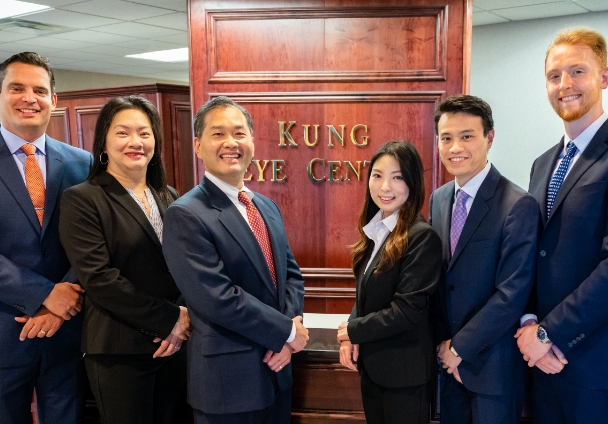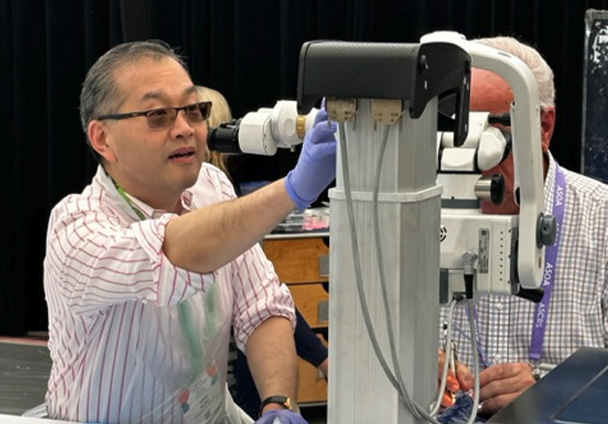Free LASIK Consultation: Call (855) 875-2020 9:00am–5:00pm

Age-related macular degeneration (AMD) is a chronic eye disease that can cause blurred vision or complete central vision loss. The macula is a portion of the retina that is responsible for detailed vision and central vision.
Macular degeneration has two forms, dry macular degeneration (dry AMD), and the more advanced wet macular degeneration (wet AMD). Most cases start as the dry type and in 10-20% of people, it progresses to wet. There is currently no cure for macular degeneration, but it can be possible to slow the progression of the disease and prevent severe vision loss. You can discuss with our doctors the best way to manage the disease. Symptoms are painless and usually begin gradually. They can include:
Gain a deeper understanding about the topics, conditions, and procedures discussed on this page by watching our informational videos.
Patients who are 60 or older are most likely to develop AMD. However, other risk factors can play a role. Smokers are twice as likely to develop AMD. Genetic and environmental factors also play a key role, as patients with a family history of AMD are more likely to develop the disease. Also, Caucasians are more likely to develop the disease than any other race.
Although there is no cure for AMD, you can alter your lifestyle to reduce your risk of developing the disease. This includes:
While there is no cure for macular degeneration, treatment can help to slow down the progression. Options may include:
If you are interested in learning more regarding age-related macular degeneration, contact Kung Eye today! Our friendly and helpful team will be happy to assist you in scheduling your eye appointment with one of our skilled eye care professionals.
Please call our New York office at (929) 429-2928 or our New Jersey office at (732) 724-2535 with any questions you may have.
STATEN ISLAND, NY EAST BRUNSWICK, NJ
Dr. Kung’s mastery in ophthalmology means you will receive thoroughly informed recommendations for vision correction and maintenance, and that your treatment will be expertly performed for the best possible results.
MEET THE DOCTORS